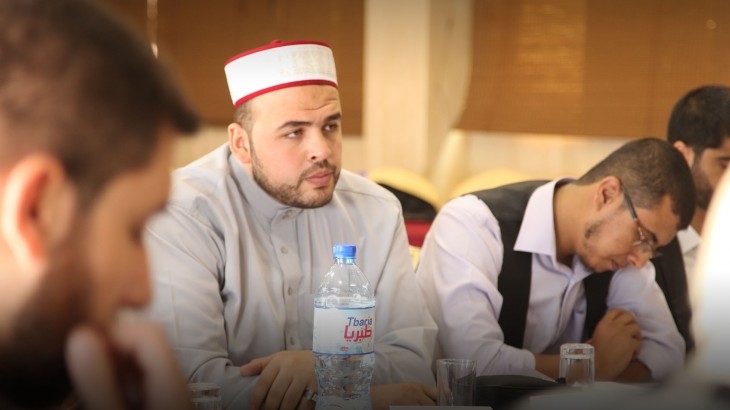For humanitarian action to be fully supported and understood, humanitarian organizations, including the ICRC, must invest a lot of time and energy in explaining the fundamental principles that guide their work and in correcting misperceptions. Else, humanitarian organizations might find themselves locked out of local communities, frowned upon, rejected and ultimately unable to help people in need.
Seeking to promote an understanding and respect of the ICRC and its work within local communities in a quest to strengthen its humanitarian response, the ICRC is exploring new local partnerships with key actors of influence and rallying their support.
In the occupied Palestinian territories where religious and community leaders have traditionally held prominent positions within their communities, the capacity they possess to influence community members and to speak on their behalf is striking. Beyond these leaders’ ability to resolve communal rifts and tensions, they also play a significant role in their respective communities during armed conflicts and other situations of violence. They can contribute to the prevention of disorder and an overall culture of civil peace and social security. Equally important, they can facilitate the delivery of humanitarian assistance as well as access to people affected by armed conflict in their respective communities by addressing misconceptions about international humanitarian organizations and building understanding for their work and mandate.
Seeing the pivotal role these leaders play in their communities, the ICRC in the Gaza Strip has engaged with them for decades to build trust and gain access to their local communities in times of peace or turmoil. It is in parts thanks to this approach that the ICRC has been able to operate effectively in the occupied Palestinian Territories since 1967 and to help millions of people in need.
In 2018, the ICRC in Gaza further upped its engagement with religious and community leaders by organizing several interactive dialogue and joint learning workshops. These workshops were organized with the ultimate aim of building a humanitarian partnership in times of emergency and crisis. To enable this partnership, an exchange of experiences on good humanitarian practices and the establishment of a joint understanding of the basic tenets of humanitarian action, through a series of workshops, was key.
It is worth noting that while enhancing dialogue and exploring joint partnership with important actors of influence, the ICRC remained faithful to its guiding principles of neutrality, impartiality and independence. The ICRC also kept in mind, at all times, the best interests of the people it is mandated to assist and protect.
With so much re-shaping and transformation ongoing of geopolitical dynamics, civil society will continue to play a critical role in the local communities. Exploring new engagement modes and partnerships represents therefore a win-win situation for all, above all, the people affected by conflict in a turbulent region.

